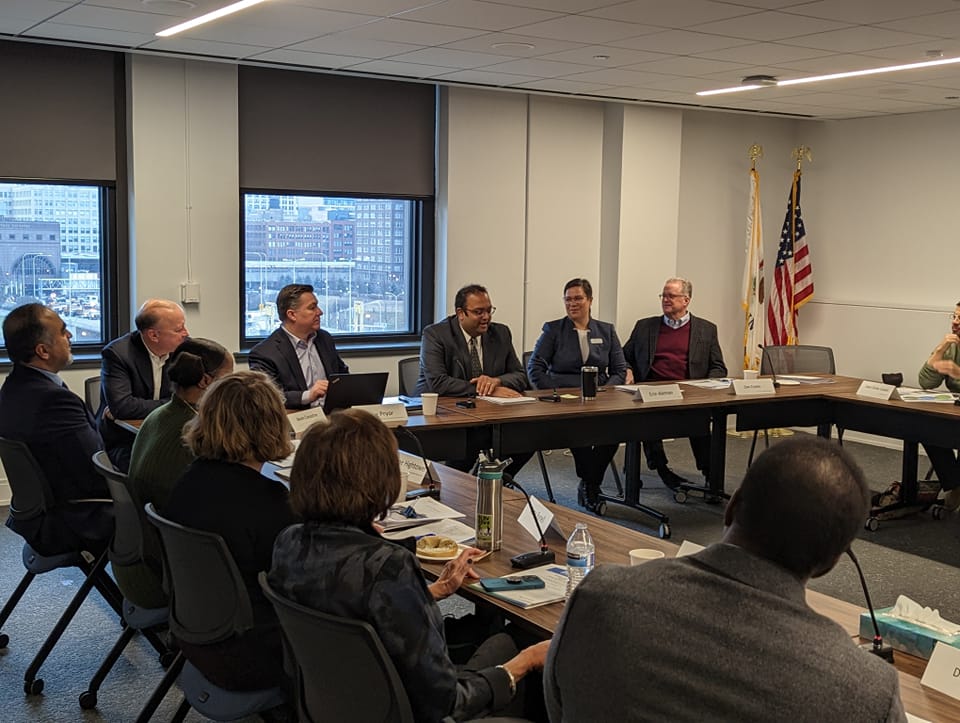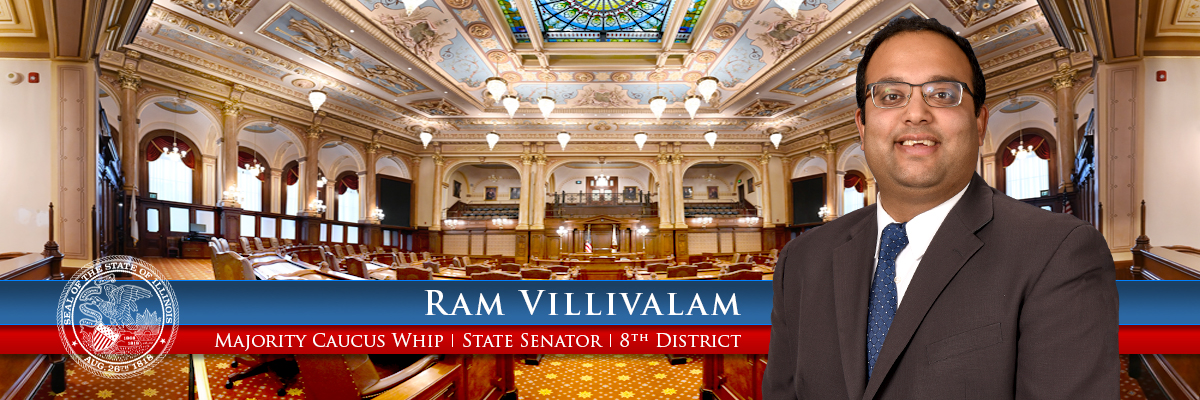 The development of a plan for a stronger and more financially secure transit system for Chicagoland is now underway.
The development of a plan for a stronger and more financially secure transit system for Chicagoland is now underway.
The outcome will be a set of state legislative recommendations that ensure the long-term financial viability of a comprehensive and coordinated regional public transportation system, as required by state law enacted last year.
With a fiscal cliff facing the region’s transit providers, the Illinois General Assembly and Governor J.B. Pritzker approved Public Act 102-1028. The law requires the Chicago Metropolitan Agency for Planning (CMAP), in collaboration with stakeholders, to submit a report that considers transit system funding, governance, coordinated regional service, and other factors. The Plan of Action for Regional Transit, or PART, report is due to the legislature by January 1, 2024.
Illinois Senator Ram Villivalam (District 8) and Representative Eva-Dina Delgado (District 3) sponsored the legislation.
"Illinois has the opportunity to build a more equitable and accessible future for transit. A reliable public transit network means better access to jobs and essential services for working families,” said Sen. Ram Villivalam. “I am proud to have passed legislation that brings our partners in the industry together for a coordinated effort in addressing the challenges we face. With their recommendations, we will lay the foundation for a more robust and inclusive regional transit network that serves our neighbors in every community.”
“My goal is to reimagine public transportation — we are at a point where we have the power and the ability to design a transit system in northeastern Illinois that is people centered. And a system like that can significantly impact our lives and our environment,” said Rep. Eva-Dina Delgado.
Coming out of the COVID-19 pandemic with emergency federal assistance expiring and ridership remaining below pre-pandemic levels, the region’s transit agencies –– the Regional Transportation Authority (RTA), Chicago Transit Authority, Metra, and Pace –– are projecting a budget shortfall of $730 million in 2026.
“Transit is the backbone for our region. It helps millions of people reach their destinations, drives our economy and impacts equity. We need big, bold solutions that can secure and strengthen the second largest transit system in the country and continue to serve those who need it most — reliably and affordably,” said Erin Aleman, CMAP executive director.
Aleman noted that CMAP data shows that during the worst of the pandemic, the region’s transit systems continued to serve as an essential lifeline for more than 250,000 riders who relied on transit each day.
To identify actionable solutions, CMAP is engaging a diverse group of stakeholders from the business, community, environmental, labor, and civic sectors, along with the public, in this process.
The PART steering committee held its first meeting on January 18 and plans to convene four other times throughout 2023. Members include:
- MarySue Barrett, MSB Policy Consulting / Brookings Institution
- Randy Blankenhorn, Former Secretary, Illinois Department of Transportation
- Carole Brown, PNC
- Deborah Carroll, University of Illinois Chicago, Government Finance Research Center Kevin Considine, Lake County Partners
- Dan Cronin, Former Chairman, DuPage County Board Mark Denzler, Illinois Manufacturers’ Association
- Derek Douglas, Civic Committee and the Commercial Club of Chicago
- Jacky Grimshaw, Center for Neighborhood Technology
- Julie Hamos, Office of Medicaid Innovation
- Darlene Hightower, Metropolitan Planning Council
- Rob Karr, Illinois Retail Merchants Association
- Jack Lavin, Chicagoland Chamber of Commerce
- David Leopold, Microsoft
- Juan Carlos Linares, Association House of Chicago
- Tom Livingston, CSX
- Justin Marlowe, University of Chicago, Harris School of Public Policy
- Laurence Msall, The Civic Federation
- David Narefsky, Mayer Brown
- Jorge Perez, Lake Effect Community Development
- Doug Pryor, Will County Center for Economic Development
- Bob Reiter, Chicago Federation of Labor
- Roberto Requejo, Elevated Chicago
- Amy Rynell, Active Transportation Alliance
- Stephen Schlickman, University of Illinois Chicago, College of Urban Planning and Public AffairsKaren Tamley, Access Living
- Jen Walling, Illinois Environmental Council
The PART report also will leverage findings and input from the RTA and its Transit is the Answer strategic plan, as well as CMAP’s Mobility Recovery project.





